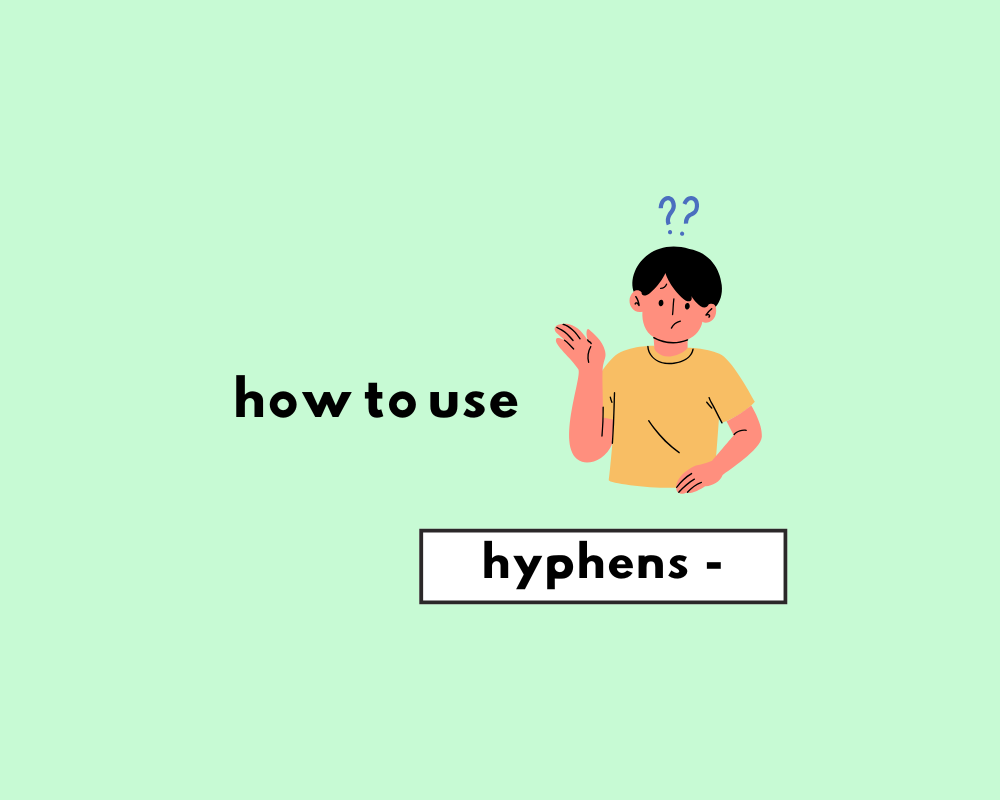A hyphen ( – ) is a punctuation mark we use to connect words and make compounds words or phrases. Some words will always use a hyphen, no matter where they show up in writing. Other times, it depends on the particular sentence and the grammatical function of the word to dictate whether we should use a hyphen or not. Keep reading to learn the difference for when to use a hyphen, and when not to hyphenate words.
When to use hyphens
If phrasal adjectives or compound modifiers come before the noun they modify, then we use a hyphen between the words in the compound to avoid ambiguity. A compound modifier, also known as a phrasal adjective, is simply a group of words that come together to modify a noun.
She’s working on a long-term project.
He’s a well-known author.
They live in a state of the art house.
We need a fast paced environment.
When compound modifiers appear after the noun they modify, we almost always leave the words within the compound open (unhyphenated).
- These chocolate-covered peanuts are delicious.
- You shouldn’t turn here because it’s a one-way street.
- I believe it’s a family-owned cafe.
Use hyphens to link words in compound modifiers that come before the noun, like “long-term project.”.
Dashes vs. hyphens
There are two main kinds of dashes: the en dash ( – ), and the em dash ( — ). The en dash separate ranges, dates or numbers, whereas hyphens connect phrasal adjectives or compound modifiers. We use the em dash much like we would a semicolon or colon. They can emphasize parenthetical information much like parentheses.
Work Sheet
According to the post, what is a common function of a hyphen?
Based on the blog post, when should you hyphenate a compound modifier like “well known”?
Which sentence correctly uses a hyphen for a compound modifier based on the rules in the post?
According to the post, which type of punctuation is used to separate ranges, dates, or numbers?
Which phrase demonstrates the correct hyphenation for a compound modifier placed before the noun, as explained in the post?
He is a author.
They live in a house.
We need a environment.
It’s a street, so you can only go in one direction.
She is working on a project that will take several years.
Frequently Asked Questions
What is the main use of a hyphen?
+
When do you use hyphens in compounds?
+
Give an example of hyphen use before a noun.
+
When DON’T you use hyphens?
+
What is the difference: hyphens vs. dashes?
+
Yash, D. "How to Use Hyphens (Examples + Explanation)." Grammarflex, Jun 13, 2025, https://www.grammarflex.com/how-to-use-hyphens-examples-explanation/.











